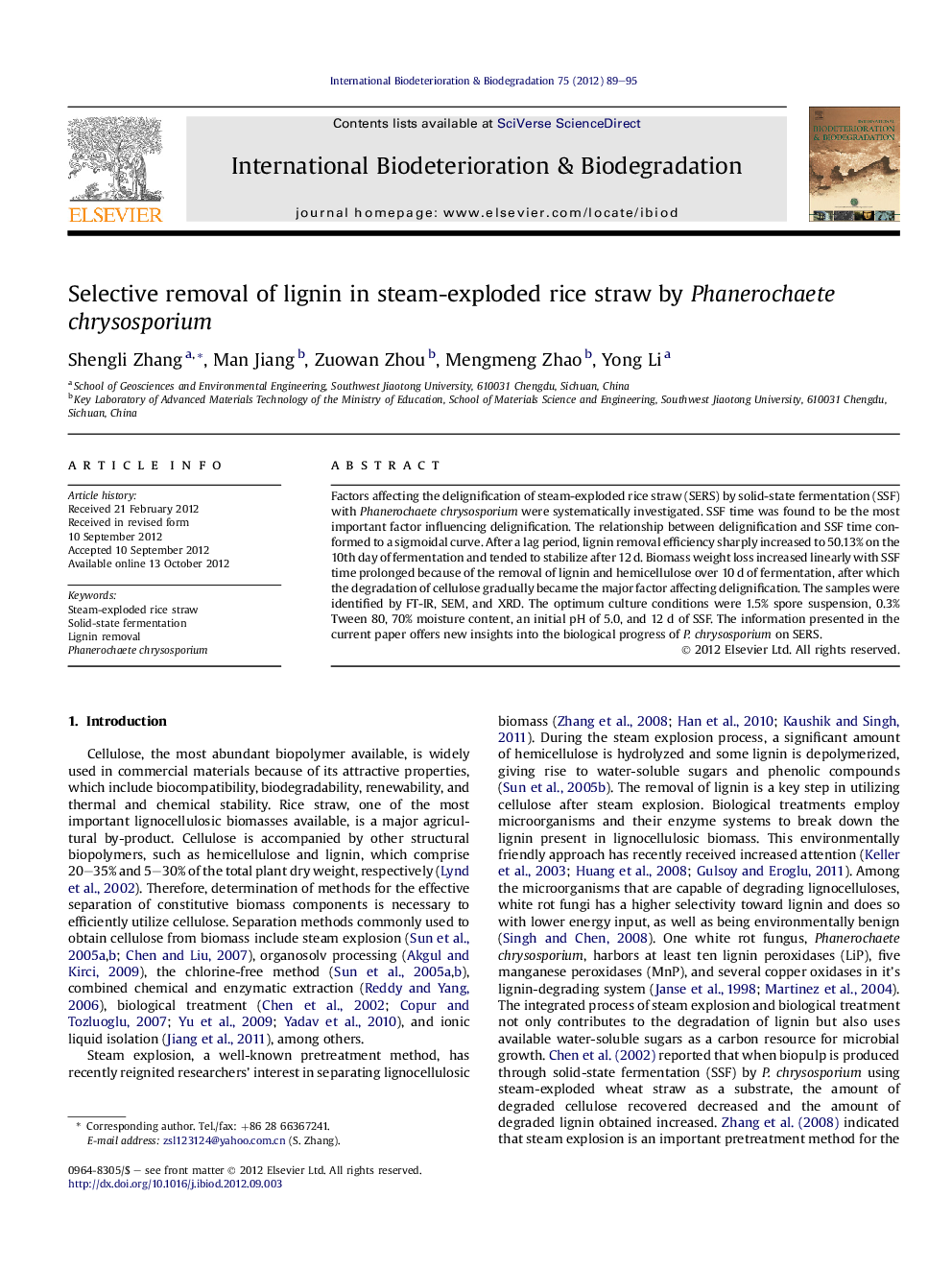| Article ID | Journal | Published Year | Pages | File Type |
|---|---|---|---|---|
| 4365208 | International Biodeterioration & Biodegradation | 2012 | 7 Pages |
Factors affecting the delignification of steam-exploded rice straw (SERS) by solid-state fermentation (SSF) with Phanerochaete chrysosporium were systematically investigated. SSF time was found to be the most important factor influencing delignification. The relationship between delignification and SSF time conformed to a sigmoidal curve. After a lag period, lignin removal efficiency sharply increased to 50.13% on the 10th day of fermentation and tended to stabilize after 12 d. Biomass weight loss increased linearly with SSF time prolonged because of the removal of lignin and hemicellulose over 10 d of fermentation, after which the degradation of cellulose gradually became the major factor affecting delignification. The samples were identified by FT-IR, SEM, and XRD. The optimum culture conditions were 1.5% spore suspension, 0.3% Tween 80, 70% moisture content, an initial pH of 5.0, and 12 d of SSF. The information presented in the current paper offers new insights into the biological progress of P. chrysosporium on SERS.
► The temporal trend of SSF does not have an inflection point. ► The relationship between delignification and SSF time is a sigmoidal curve. ► 58% lignin removal was obtained under the optimum conditions. ► Cellulose remained in good condition for further application with 12 d of SSF.
